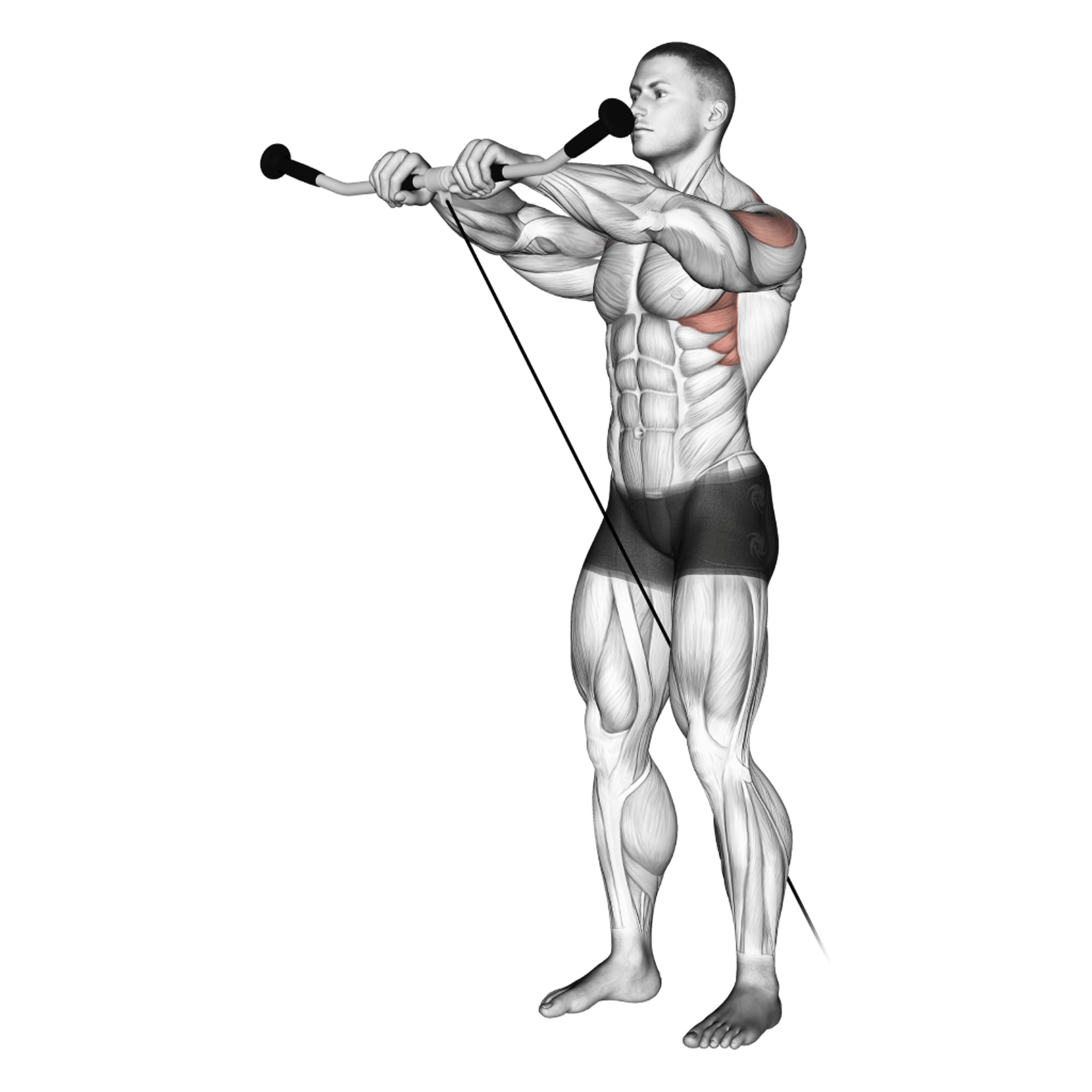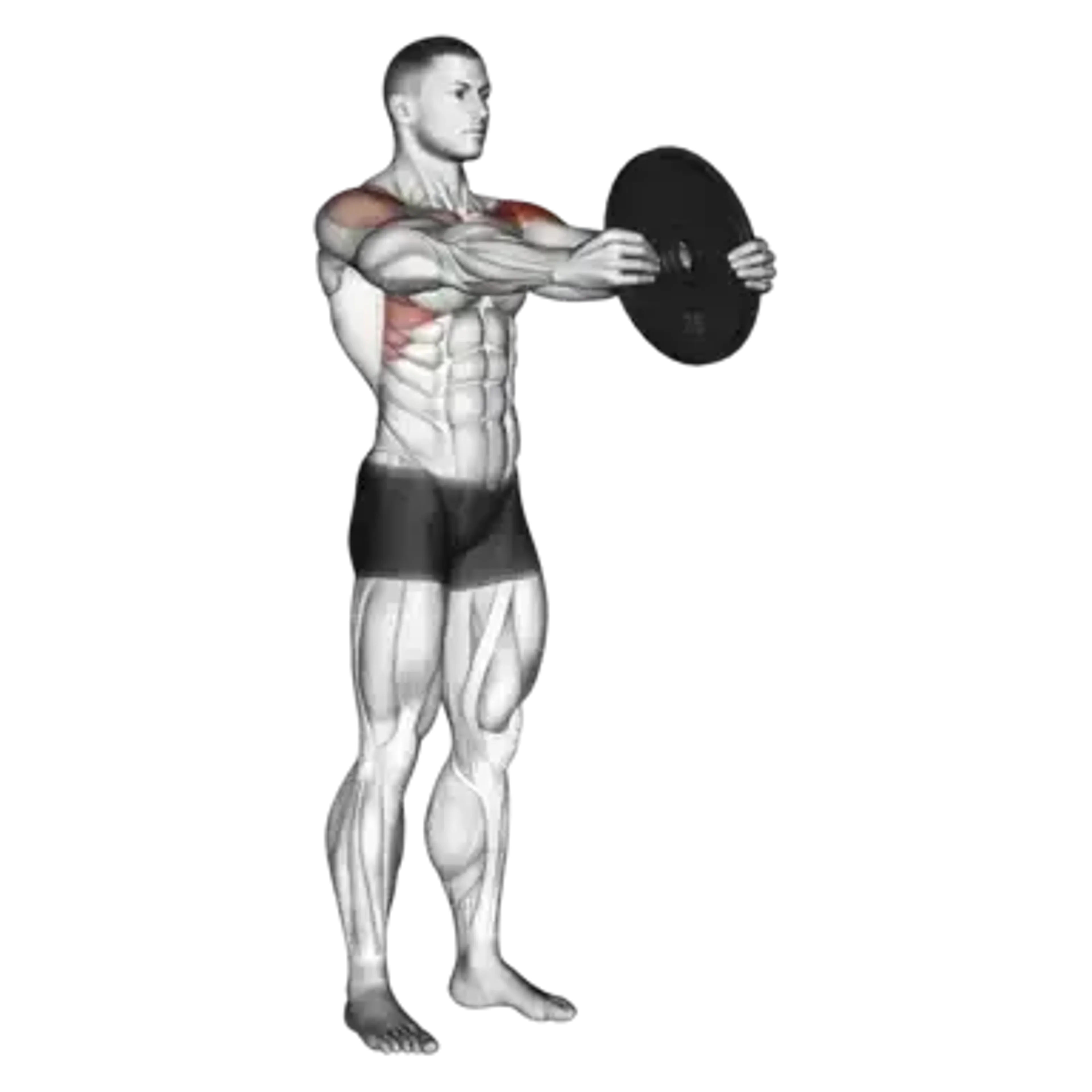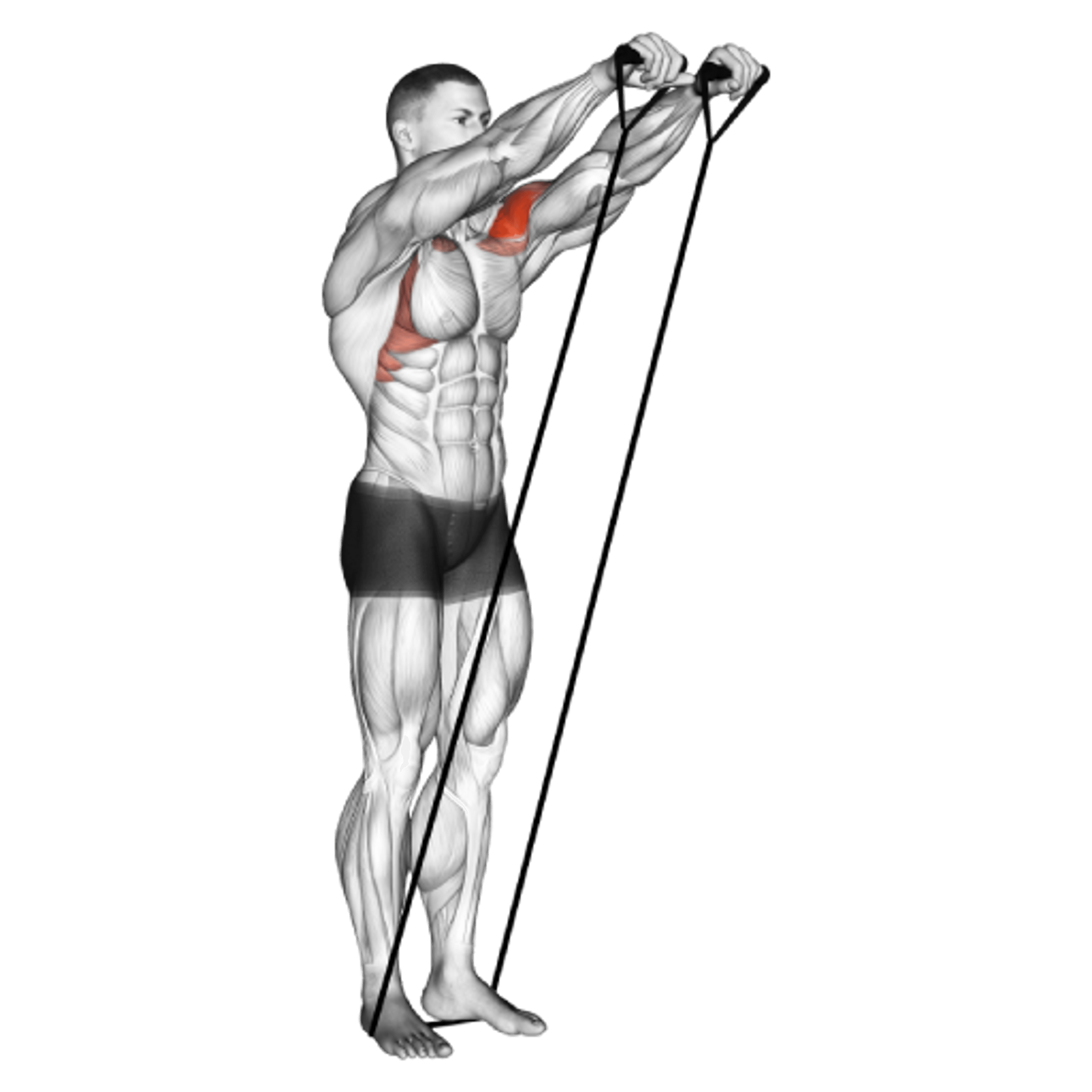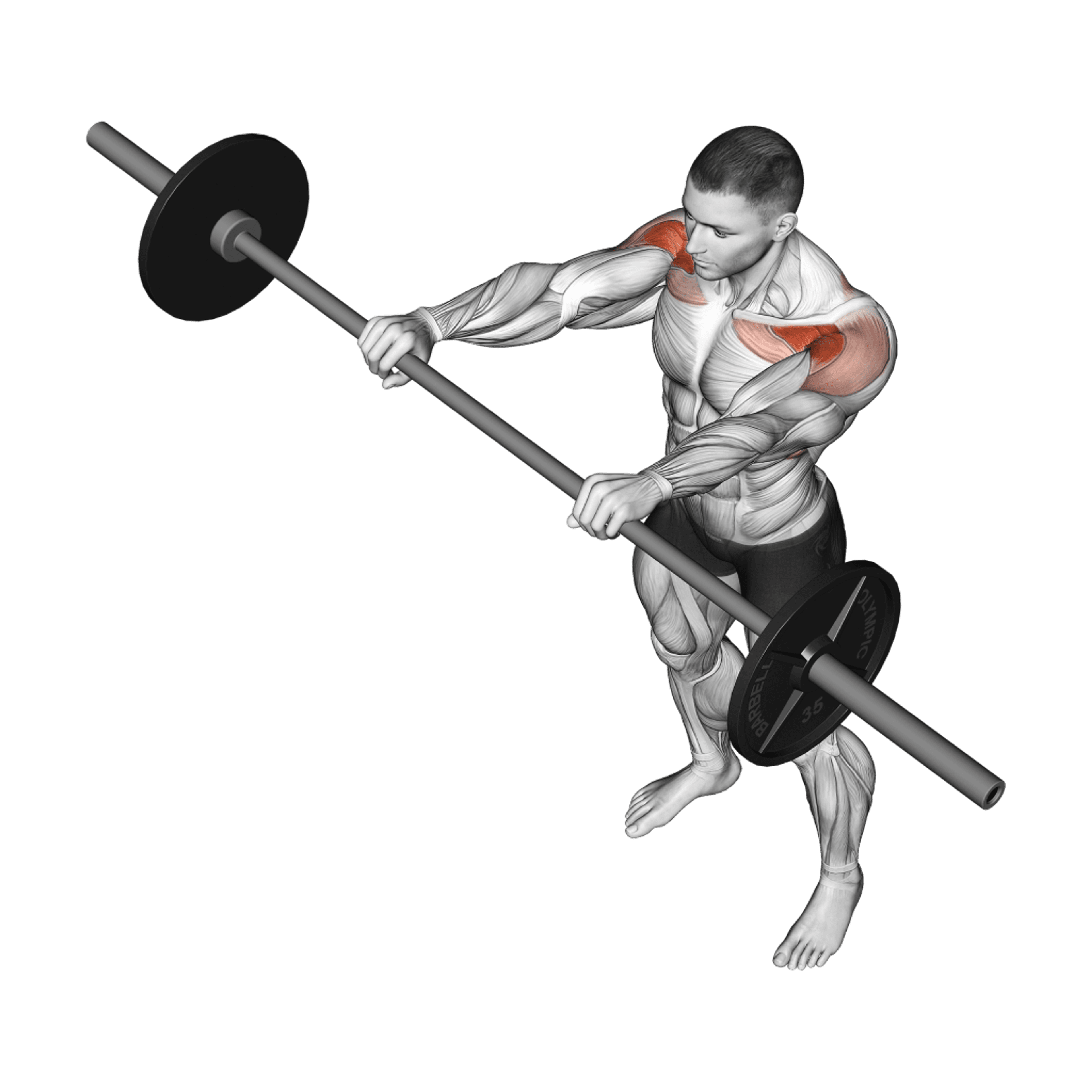Kettlebell Front Raise

Overview
- Primary Focus:
- Shoulders.
- Equipment:
- Kettlebell.
- Difficulty:
- Beginner.
General Information
Kettlebell Front Raise is an isolation exercise that primarily targets the front shoulders. It is a beginner-level movement emphasizing the anterior deltoids with controlled, straight-arm lifting to shoulder height.
The kettlebell’s offset mass encourages a neutral wrist and smooth tempo. It works well for hypertrophy, activation before pressing, or as a low-skill accessory when equipment is limited.
Keep the path slightly arced and avoid swinging through the hips. Use moderate loads so the shoulder, not momentum, moves the weight through the top half of the range.
If shoulder height is uncomfortable, stop just shy of that point and focus on steadiness and even tempo across both sides.
Muscles Worked
- Deltoid
- Primary
- Pectoralis Major
- Medium
- Serratus Anterior
- Medium
- Erector Spinae
- Minimal
- Lower Trapezius
- Minimal
- Upper Trapezius
- Minimal
Instructions
- Stand tall with a kettlebell held by the handle, arms straight and palms facing thighs.
- Brace lightly and keep ribs down; avoid leaning back.
- Raise the bell in front with a slight elbow bend until about shoulder height.
- Pause briefly, keeping shoulders down and neck relaxed.
- Lower under control along the same path without swinging.
- Repeat for reps with even tempo; switch sides if using one bell.
Common Mistakes
Injuries
Kettlebell Front Raise is a low risk exercise when performed with proper technique.
Discomfort often comes from shrugging or using momentum. Keep shoulder blades down and control both directions with a moderate load.
If pain persists, reduce range below shoulder height or switch to a cable front raise for continuous tension. Stop with sharp pain or numbness.
Alternative Exercises
Frequently Asked Questions
- Q: Should I go above shoulder height?
Shoulder height is sufficient for most. If pain-free and controlled, a slight higher finish is acceptable but not necessary.
- Q: Better with one bell or two?
Either works. One bell emphasizes unilateral control; two bells increase total load but require the same strict tempo and posture.
- Q: How many reps are ideal?
Moderate to higher reps work well, typically 8-15 per set, staying a rep or two shy of technical breakdown.
Overview
- Primary Focus:
- Shoulders.
- Equipment:
- Kettlebell.
- Difficulty:
- Beginner.




